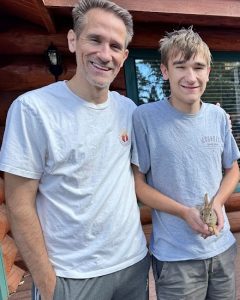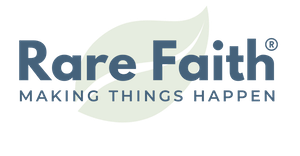We live in a society today where there are an unlimited number of ways to make money from home (pictured above is just one of those ways). This is my sister-in-law’s Etsy shop, which is really thriving! But no matter who you are, or what you do (or will someday do), if you’re a mom working from home, you face some unique challenges.
Class Description:
Women, especially moms, tend to struggle in business.
- They get excited about a great idea, and then get hung up trying to figure out how to get their business off the ground.
- They struggle with all the information that’s out there and trying to figure out what works, and what is just hype.
- They struggle feeling like they need to have “permission” to invest in themselves and their dreams.
- They struggle with finding the time they need to pursue their dream because they are so busy taking care of everyone else.
Does any of this sound familiar? Well, this is typical of women who feel pulled to make a difference and build a business.
Then, how have some women been able to build a successful, fulfilling business AND have the freedom to be with their families?
Carol Lamoreaux wondered the same thing. So she decided to interview women who have built their dream business and chat with them to find out their secrets. In this podcast you can listen in on her interview with me, and learn more about:
- How to get things done.
- How to keep the important things important.
- How to be your authentic self and just go for it!
- How to keep yourself on track.
- And more…
Show notes:
Rudy
Why I love my business: it lets me be mom at home
Mistakes women make in business
- not being themselves (be a better version of yourself instead of someone entirely different)
- stop trying to please everybody
When building a business, where do you spend most of your time? Can’t go wrong spending time daydreaming about the vision. You don’t have to go the distance, be smarter, faster, etc.
Rely on unseen help, partner with God
I can’t do it by my own strength
Visualizing doesn’t just keep you motivated, it causes lucky breaks and serendipitous experiences
Don’t become enslaved to your business
When lucky breaks become predictable instead of shocking
Productivity Waster: worrying
Feel stuck? serve someone
Even busy work is more productive than worrying
You can’t steer a parked car, and worrying parks your car
Serve someone without expecting a reward
Expand your knowledge or create something that expands someone else’s knowledge
Relationship Capital x Mental Capital = Financial Capital
If you’re worrying about something and then it happens, you’ve lived it twice
Don’t anticipate it
#1 Productivity Habit: visualizing the finished product
Clear vision ensures the greatest efficiency
Sometimes I can only see the next step so I go that far and trust that the step after that will be apparent when I get there
Husband wants to see the 10-20 year picture, but it overwhelms me (the what to do piece)
Favorite tool in my business:
Automation software
Strategies to stay on target:
Allow myself to get off target, seasons of imbalance
Sharon Lechter – standing over feet balance analogy
Be willing to swing
Airplane is off target most of the time, always course-correcting.
How do you fit personal development in?
Not the way we used to. A little bit of reading every day, and spending time with like-minded people who can help us remember who we are and where we’re trying to go.
Advice for someone just getting started: Believe in your dreams, they wouldn’t be there if they weren’t possible.
People will think you’re crazy.
Dog chasing rabbit analogy
When you see it, what to do next becomes instinctive.
What am I doing now that I’m passionate about?
I spent years teaching people how I built a six figure income giving my book away for free – so I’m passionate about giving away my free things 🙂
Free gift for listeners:
Hidden Treasures: Heaven’s Astonishing Help with Your Money Matters – free download at http://www.hiddentreasuresbook.com
More about Carol Lamoreaux:
Need a new website?
Want your current website overhauled?
Need help managing your email autoresponder?
Doing a telesummit and need help managing the tech stuff?
Carol is here for you! ProMomSolutions specializes in building client-attracting and list-building websites and telesummit projects. I also help mompreneurs get rid of tech headaches, by taking it off your plate, so you can spend your valuable time on what you are good at.
Learn more about Carol at at https://promomsolutions.com/
TRANSCRIPT:
ANNOUNCER: Welcome to the Rare Faith Podcast, where the solution to every problem is only an idea away, and where the same activity with just a little more awareness always yields better results. Award-winning best-selling author Leslie Householder brings some of her best information to this inspiring series of life-changing episodes that you won’t want to miss. Show notes for this episode can be found at ARareKindofFaith.com.
CAROL LAMOREAUX: Hello and welcome everyone to the Making Money From Home Summit, where experts will help you discover the top tools and strategies for succeeding in your own online business. And I’m your host Carol Lamoreaux. I put together this summit to help you learn from successful experts who will share the top tools and strategies they have discovered in building their own online businesses. And my hope is that it will help you to shorten the learning curve in building your own business. And today I am so excited to talk with Leslie householder.
Leslie is the mother of seven and the best-selling award-winning internationally-published author of the Jackrabbit Factor, Portal To Genius, and Hidden Treasures: Heaven’s Astonishing Help With Your Money Matters. She is a founder and creator of Genius Bootcamp and a contributing author to multiple Chicken Soup for the Soul publications. It was after a long and intense search for answers that Leslie ultimately discovered some powerful principles which, like turning the final disc on a spring-loaded combination lock, allowed her family to triple their income in only three short months. The key was so simple, so powerful, and yet so typically elusive, she made a commitment to helping others discover the principles so that families could be strengthened and so that faith in God could be restored to those who have lost hope. Leslie, welcome!
LESLIE: Thank you so much! It’s great to be here!
CAROL: Yeah, I really love your books! They really helped me to discover these principles and understand how to use them in my life, and they’ve really made a big difference. And I really appreciate them.
LESLIE: Oh good, good. Well, it’s fun to watch the lights go on and to experience it. I know business owners everywhere can always use another arc of insight, you know, to help them take the next step.
CAROL: Yeah, that’s for sure. So first off, what is your story and how did you get started in your first business?
LESLIE: Well, I wouldn’t want to talk about my first businesses. Those were tough, but the reason I do what I do is because of just what you described in my bio. I really wasn’t looking for a career; I wasn’t wanting to necessarily have a business. It was just born out of necessity – these efforts to try to make money. Because I just wanted to be a mom, and finances just didn’t really allow that luxury to only focus on the children.
So I remember watching a movie years ago named Rudy, and I don’t know if you ever saw it. It’s about a young man who wants to play football for Notre Dame, and it’s based on a true story. And I watched that movie and I got so caught up in his determination and he had all the odds were stacked against him – and he wasn’t built right for it, he didn’t come from the right family background, he couldn’t get into the school in the first place academically. I mean, it was just this beyond hope kind of a dream, but he stuck to it and eventually he achieved his dream. And the whole time I was thinking, “Man, I wish there was something that I could be that passionate about.” Because there was really nothing in my life that had that fire for me so strongly that the first obstacle that came along I wouldn’t just say, “Oh never mind.” You know?
And so I remember thinking I wish there was something I could be that passionate about. And what’s interesting is I didn’t have anything, but a few years later those struggles that we’d gone through – and then ultimately discovering some principles that changed everything – it put that fire in me. All of a sudden I had a cause. I had a passion. I wanted other people to experience those lights going on for them as they had for us, and it became my business. I started teaching seminars about what we had learned, but again not really conducive to just being a stay-at-home mom if it was hard, and ultimately I decided well, you know, I want the message to get out there but I just it I just don’t have the time and energy to keep doing events. So I wrote the books to let them be my seminar, you know, while I change diapers at home. So that was the beginning of the business I do now and it’s been a huge blessing because it’s allowed me to be mom at home. Most of everything that I do is online and it still serves people whether or not I’m presently engaged in the moment.
CAROL: Yeah, I love that story because there’s a lot of women out there, myself included, who are moms who are looking for a way to be able to stay home with their kids.
LESLIE: Yeah
CAROL: Like right now I work full-time and I’m trying to work it so that that can go away, but it is what it is you know. So it’s inspiring to hear when someone has figured out a way to do that, and so I appreciate your story a lot. You know as you kind of meet with people, talk with people: What are some of the top mistakes that you see, especially women, making in business?
LESLIE: Well you know I was thinking about that and I hesitate to say it’s a mistake – because although I believe it is a mistake – it’s a judgment call and, you know, everybody is who they are and doing what they do for a reason. But one thing that comes to mind is not being themselves. I’ve seen a lot of a lot of business owners, especially with women who are trying to be somebody that is maybe more professional than they are naturally inclined to be, or more corporate, or more businesslike, more manly – more all these things. And I’ve been to a lot of trainings – business development trainings – that would coach me to be a bigger, better person than I am right now. And there’s nothing wrong with aspiring to be better, but I would just encourage women to be a better version of themselves than someone that they’re not. And sometimes you don’t recognize that’s happening to you until you’re well down the road and find yourself burned-out or exhausted or, you know, I just have learned that when you’re when you are your authentic self, when you’re just working on becoming the best version of you and being selective about the advice you receive from business coaches and whatnot. I had a lot of people and had a lot of people tell me that the way I was doing business wasn’t going to work. That I really should try to speak to a different audience or I should really try to put on this different image than who I really am. And I went down that road for years and hit burn-out. I really did. And since then I’ve been able to pull back, reevaluate how I approach my business, and just decided that, you know, I am Who I am, and God has given me unique perspectives and talents or gifts or experiences or whatever to make me who I am, and I should just embrace that and capitalize on that. Because I will speak to a certain category of the population who I am divinely prepared to touch and stop trying to please everybody.
CAROL: Yeah, I like that because I think when you’re trying to be someone who you’re not, like you said, you end up hitting burnout because it just makes everything so much harder. Because besides what you’re trying to do you’re trying to remember yeah I have to act this way, I have to be this way. And sometimes it really almost doesn’t make it worth it because it just wears you out.
LESLIE: Thank you. Amen. I know.
CAROL: So those people are trying to start a
business or running a business – what areas
do you think they should spend most of
their time?
LESLIE: That’s going to evolve over time depending on where they’re at in their business development. The one thing that you can never go wrong with is to spend more time daydreaming about the vision of where you’re going and what you’re wanting to create. Some people may think that’s a waste of time to ponder and daydream and imagine. Just imagine – and not just imagine what it’s going to look like when it’s built – but imagine how you’re going to feel once it has been built. And the reason is because as you do this the things you need in order to accomplish it literally are lining up to meet you halfway. You don’t have to go the distance like I used to think. I thought you’d have to go the extra mile all the time and do something bigger, better, stronger, faster whatever than some other business is going. But really if you spend time daydreaming, imagining, and feeling the success that you expect to feel when it’s done, those unseen things are lining up. And, you know, women especially you’re juggling typically juggling so many things that if they also want to build a business they really have to learn how to rely on that unseen help. I’m a strong believer in God and that he gives us a vision for what’s possible. So it’s good if we can learn to partner with him to accomplish those things. And I found out that I cannot do it by my own strength so I really do rely on that, you know.
CAROL: I like that because you really need to know what is it that you’re trying to do. And spending time thinking about that – having it in your mind – kind of pushes you forward towards that.
LESLIE: Yeah, it keeps you motivated and for a long time I thought that’s really all that it was doing, but it does more than that. You hear stories of lucky breaks or, you know, serendipitous encounters with people that “Oh my gosh! The right person showed up at the right time to teach me this one thing.” Well, those things happen because you’re putting yourself into a state of mind to be drawn to or led to those resources and ideas and people that you need to accomplish those goals. And I know it sounds kind of crazy, but this is really what my business is about – is teaching people how that works and why it works and how they can rely on it. It just makes life so much easier, I mean, because the idea is you don’t want to build a business that you become enslaved to. And that’s so easy to do when you’re trying to muscle it through by your own strength and faith. Faith in what you’re trying to accomplish really goes a long way.
CAROL: Yes. Yeah, that’s for sure. I’ve certainly seen where things have just shown up. Sometimes you don’t realize it at the time, but as you look back it’s like “Wow! That made a big difference for me that that person or that whatever showed up at just the right time when I needed it.”
LESLIE: Right, right. And then as you start to live and learn and apply these principles those experiences become predictable more than shocking when they happen.
CAROL: Yeah. So what are some of the biggest productivity wasters that people do when they’re trying to run a business?
LESLIE: Oh, the biggest productivity waster is worrying – worrying about what you need that you don’t have. Because if you ever feel stuck you can just serve someone. And I would put worry above any other productivity waster out there because sometimes you don’t really know what you should be doing naturally. You just kind of getting busy mode and you’re doing busy work and you’re not sure if you’re being productive. But that is still more productive than worrying because as long as you’re still in motion, you know, it’s like you can’t steer a parked car. And worry parks your car. As long as you’re in motion, you can be steered. So if you do ever feel stuck and you just say okay well I don’t know what to do next, but I can go create value for somebody. And without expectation of the reward or a sale or anything – or if you expand your knowledge or create something that expands someone else’s knowledge. And it’s because there’s a formula that I was taught by one of my mentors, Garrett Gunderson. He is my co-author, actually, to Portal to Genius. He taught me that the formula is:
Relationships x Mental Capital = Financial Capital
So if you need more financial capital, build relationships or build mental capital. Because, in other words, as you build the relationships and as you also grow mental capabilities in your others ,the financial reward ultimately becomes a byproduct. But too many people go after the byproduct directly without regard for the factors that created the strong foundation for it. And so instead of worrying, go serve somebody. Get your mind off of what’s worrying you and be productive in building a relationship or building your mental capital – or somebody else’s – and the financial capital will always follow.
CAROL: Well that’s great. Worry really is a waste of time because, really, what does it buy you other than stress?
LESLIE: No, and I’ve heard people say this before that if you’re worrying about the worst-case scenario – or worrying about what might go wrong – and then it actually happens you’ve lived it twice. If you’re going to have to live it, just live it once. Live it when it happens; don’t anticipate it.
CAROL: Right. Then what is your number one productivity habit?
LESLIE: Really, mine is visualizing the finished product of my next project. To see it clearly guarantees that when I get into action mode I will be the most efficient at getting from Step A to Step B is really visualizing it, seeing it. Sometimes I can only see the next step and so I’ll do that much, trusting that the next step beyond that will become clear. I know some people are a lot more organized in their brains than I am. My husband, for example, when he’s creating something or working on a project he wants to see the end from the beginning. And he wants to see what it’s going to look like 10 years from now, 20 years from now. And sometimes that overwhelms me because I don’t compartmentalize as well in my brain. I’m doing one task while thinking and processing other tasks in my head, and my brain is always just so active that I get overwhelmed. And so we kind of have this joke between us that I only want to see the next step. Yeah, I’ll visualize the end product – the end result that will eventually be realized – but I only want to see what’s next. Otherwise I get overwhelmed and I shut down, and I’d become very unproductive. So it’s just a personality thing. I think we all think differently and that’s the way I think.
CAROL: Yeah, you’d really have to, you know like you say, do whatever works for you. Because sometimes I tend to be someone that wants to see everything. But that can be overwhelming because then you sit down you think “Oh, I have to do these 40 things to get there,” and it’s like “I’m not going to have time to do that.”
LESLIE: Yeah, as I look back, if I knew ahead of time everything that I was going to have to do to get to where I am now I don’t think I would have started. It’s only by those bite-size pieces that I thought, “Oh, this will only take me a couple days.” You know, three months later finally done, you know. Or “This will only take me a month.” Three years later, finally done. If I knew that some of those things I did would take as long as they were going to take, I don’t think I would have started them. And so I’m grateful that I’ve learned how to operate my way for me, you know, that I’ll stay productive as long as I kind of just chunk it down and trust that everything’s going to work out in the end.
CAROL: Now when you said that I thought, you know, it’s funny how things work out the best way for us. Like you take a step at a time so that’s how it comes to you, and you know because there’s things we need to do. And so you kind of get the information you need when you need it in the way that you need it so you can get to where you need to go.
LESLIE: and I think it’s also because of the vision for where I’m trying to go. I’m not trying to build a large corporation on the Inc 500 list. If I were, the strategy I’m using right now I don’t think would work quite so well. I know what I want to build, I know what it looks like, and this is how it works best for me. And that may change and evolve again, steps are fine.
CAROL: Yeah, things change as you move along and it’s okay. So what is your favorite tool that you use in your business? You said visualization; is there anything else that kind of helps you?
LESLIE: Well, actually, my favorite tool is the software that I use. It allows me to build a business system once, and then it handles almost everything for me automatically beyond that. Some people prefer to build a business that depends on them to be present, but that was never my ideal. Mine would serve people even when I’m not there; because remember I wasn’t looking for a career.
CAROL: Yeah, so especially for moms anything that you can get to help kind of automate things, whether it’s a tool or whether it’s even an assistant or whatever you need I think that’s going to help. Because if your whole goal is to be able to take care of your kids and build a business, I’m sorry, but you can’t do it yourself. So, what are some of the strategies that you use to keep you on target?
LESLIE: That’s a funny question because my answer to that would be allow myself to be off target. There’s temporary seasons of imbalance. For a long time I was driving myself crazy with guilt and with stress trying to keep everything balanced – create routines that allowed for balance, a little bit of business here, a little bit of home maintenance here, and a little bit of all of it every day and I just was never good at that. I’m better at – I see something needs doing, I go after it while everything else falls apart. And then I notice everything else was falling apart so I put that aside and I go back and get that put in place. And I thought there was something wrong with me by doing it that way – these temporary seasons of imbalance – until I heard a woman by the name of Sharon Lechter. She was actually the co-author for Rich Dad, Poor Dad with Robert Kiyosaki. And she was talking about this dilemma that women have sometimes with building business and keeping balance, and she said, “Alright, if you are standing square over your two feet, balanced, how are you ever going to get anywhere?” In order to walk you’ve got to shift your weight back and forth and swing the other foot forward. And she says so life is not about balance – balance is a myth. In order to progress you’ve got be willing to swing a little bit back and forth and give yourself permission to do that. And so my family knows when I’m working on a deadline or a project or something that is the focus, dishes are probably going to pile up and they can pitch in. Laundry. In fact my daughter learned to cook when she was seven because mom wouldn’t cook when she was writing a book. And it was out of necessity, and like I said at the time I was like, “Oh, I’m being horrible,” but I look at the skills she gained through that and she’s really proud of herself. And now she’s 16 and has developed a lot of things that I never developed at her age or even after I got married. Some things I still haven’t done. So it’s just that temporary season of imbalance, and permission to do that keeps me on target. Because you know an airplane, for example – we’ve heard this analogy before, too – is off target most of the time. It’s always course-correcting and that’s okay. And so as we get that nudge, that sense of a nudge that we need to, you know, slow down on this piece and speed up on that piece – just follow those gut feelings that you have and it’ll keep you on target.
CAROL: And sometimes they almost look like a detour, but it turned out to be even better than what you thought that you were going for. So, yeah, you just need to be a little bit – I don’t know if easygoing, you know, just kind of, you know – don’t be so focused on something that you miss everything else, you know, because you just never know. You know, being a mother – I mean, seven kids – that keeps you busy. I come from a family of seven kids so I understand. How do you fit in personal development between taking care of the family, doing your business, your books, everything else – how do you fit that in?
LESLIE: Well, that’s kind of like the temporary seasons of imbalance. There’ve been periods of time in our marriage where we were focused on personal development to such a degree that we were sacrificing a lot of things to focus on that. Because that’s what we felt was needed at the time. Now we’ve come to a place where our personal development a lot of times is just more personal, more internal, more here and there as we feed our spirits and our minds. But we’re not attending events as much as we used to. We’re not spending midnight hour with mentors, like we used to. Once the lights turned on and we understood the principles that they’ve been trying to teach us for seven years, we’re able to do it more independently. But we always try to keep a little bit of reading in every day just to keep our thoughts elevated associating with people who are like-minded and helping us remember what we’re trying to accomplish, and who we are, and where we’re going.
CAROL: I like reading books at night. It’s kind of a wind down for me, you know, stop working and it kind of keeps that inspiration, motivation, whatever coming every day because that’s how we do it. You get so bogged down and everything it’s just like you just need to get away
sometimes and that does it for me – or even walking outside around the backyard – something like. What is one piece of advice that you would give someone who is just starting out in their business?
LESLIE: I would just believe in your dreams. You wouldn’t have the idea and the passion for it if it wasn’t possible to succeed. And so the more people are probably going to think you’re crazy when you start your business. You’re going to have your naysayers. I remember one of our mentors years ago he said, “Have you ever seen a dog chasing a rabbit?” And I don’t know that I ever had, but I could picture it, you know, dog chasing a rabbit jumping around and barking and chasing. And he said “What would you think of the dog if you couldn’t see the rabbit?” And I thought “Well, I’d think it’s crazy; I’d think it was crazy.” He said “So when people think you’re crazy just don’t worry about it. They just can’t see your rabbit.” And that was actually the foundation for my whole Jackrabbit Factor book that I wrote to be my seminar in the first place because it all comes down to: What are you chasing? What do you see? And how is it that you can catch that rabbit? So it’s a great analogy that’s helped me not worry about what people think and to stay focused and believing in where I was going what I was trying to accomplish.
CAROL: You know, I really love that because like you say, people can’t see what’s in your mind, what you’ve envisioned, what ideas or inspiration you’ve received. You can try to explain it, but they still may not be able to see what you see in your mind. So, I love that.
LESLIE: The fact is that when you do see it in your mind you’re instinctively going to know where to go, what to do. Because you know the dog chasing the rabbit – it sees the rabbit so it chases it. But what about the guy that says, “Oh I think I want a rabbit, too” and he goes out there and starts barking, jumping, and chasing but there’s no rabbit. If there were any rabbits nearby he’d be scaring them away. And that’s one of the biggest mistakes that people make in business is they take action before really seeing the vision of what they’re trying to accomplish. When you see it, what to do next is instinctive, you know. And so you get these business programs that say, “Oh, do this: Step One, Step Two, Step Three.” Well yeah, that’s going to work for you if your vision happens to be the same as the one who came up with those steps when they saw their vision. It’s not barking and jumping; you’ve got to see your rabbit and then you’ll know what to do.
CAROL: Yeah, that’s great. I really like that analogy, and hence your book. I really enjoyed that because I mean that’s the whole point of it: envision what you want and go for it. So tell me something that you’re working on right now that you’re passionate about.
LESLIE: Well, I just love what I did because of my business model that I can teach people how I built a six-figure income giving my book away for free. So because the system’s is in place now, I’m just fine-tuning it and it allows me to be a full-time mom and at the same time lets me passively help others achieve their goals. So what am I passionate about? I’m just passionate about giving away my free stuff. That’s what I love to do most because it’s really easy to sell free things – you know what I mean? So that’s what I’m passionate about is I love what I’ve learned, I’ve loved what we’ve discovered, and I love helping other people discover it, too, for the first time – these principles that are so powerful and so helpful and help them achieve their goals. I get emails all the time of what it’s doing for people and that’s what I’m passionate about – seeing that happen for others.
CAROL: Yeah, it is so much fun when you can do something that actually makes a difference to someone – that’s fantastic! So I understand that you have a free gift for the people that are listening. Can you take them in and tell them about it and how they can get it? And there’s also going to be – there’s a link available so they can easily go find it, but I’d just like you to tell about it.
LESLIE: Definitely. Well, I’ve got a lot of wonderful things. so this I wanted to just direct our listeners to the Hidden Treasures free ebook. It’s called Hidden Treasures: Heaven’s Astonishing Help With Your Money Matters. Because it explains exactly what’s going on behind the scenes when you choose to believe in what you’re doing and your goals versus when you choose to doubt or when you allow yourself to doubt. It helps you understand that unseen help that I was talking about before. And even if you don’t go read the book you can go to this page I’ll tell you about and read what other readers have had to say about it, and what they’ve been able to accomplish with their higher awareness of the principles that it describes. I think you’re going to find it really interesting and that webpage is hiddentreasuresbook.com. And so go get the free ebook, read it, enjoy it, and then let me know how it helps you because I know it will.
CAROL: I’ve certainly found a lot of help in that book. I love that book. And I have the paperback and there’s lots of highlights throughout it with my yellow marker. Leslie, I want to thank you so much for sharing everything you’ve shared with us today. I certainly enjoyed it and I know that what you shared is going to help a lot of people that are listening today because I think understanding these principles really does help propel someone forward to getting what it is they want and what they dream of. I also want to thank everyone for joining us today and I really hope you’ve learned something from the great tips that Leslie has shared with us and I hope you all have a great rest of your day.
[Music]
This concludes today’s episode of the Rare Faith podcast. You’ve been listening to Leslie Householder, author of The Jackrabbit Factor, Portal to Genius, and Hidden Treasures: Heaven’s Astonishing Help With Your Money Matters. All three books can be downloaded free at ararekindoffaith.com. So tell your friends and join Leslie again next time as she goes even deeper into the principles that will help you change your life.
[Music]


















Recent Comments